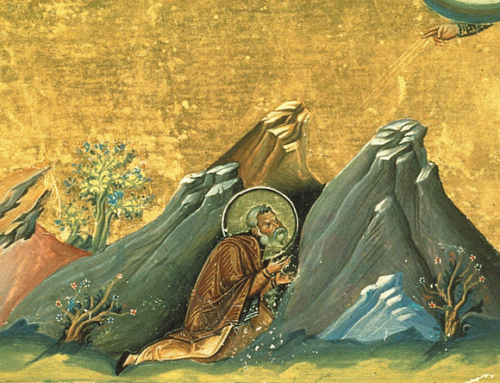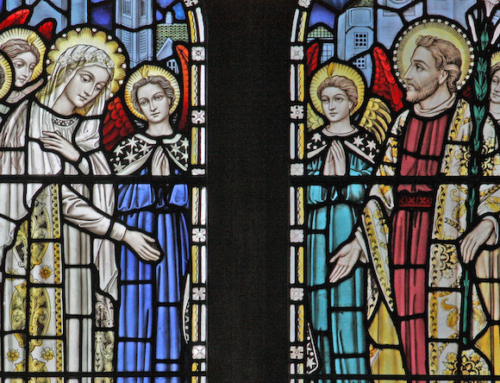Our friend Tom is in a moral pickle. His elderly mother—bedridden with dementia and slipping in and out of consciousness—nonetheless clings to life. There is no telling how long until she will “shuffle off this mortal coil.” In the meantime, her continued tenuous existence causes her tremendous suffering, not to mention the pain experienced by Tom and his younger sisters.
Tom, nurtured and educated in an environment that valued relativism and utilitarianism over his family’s Catholic faith, has no doubt in his mind what is to be done. He desires to relieve the anguish of his mother and siblings, as well as his own. Tomorrow, he will sign the paperwork allowing a doctor to inject his mother twice: the first to render her comatose, the second to stop her heart and allow her at long last to rest in peace.
Euthanasia, however, is an intrinsically evil act that is always contrary to the commandment of the Author of Life: thou shalt not kill. Unquestionably, wanting to end suffering in another is a good and noble intention. Dementia is certainly a terrible circumstance that compromises the quality of life. Nevertheless, no good intention or bad circumstance can ever render the act of taking innocent life permissible. When Tom probes his conscience, however, he concludes that, given the concrete situation of his mother lying in a hospital bed waiting to die, he is really and truly morally certain that his action is warranted.
According to St. Thomas, this other Tom finds himself in an eminently unenviable position. On the one hand, his conscience, formed by faulty reasoning, does oblige him to act. Our decisions are based upon our knowledge, even our objectively faulty knowledge and ways of thinking. To decide against one’s knowledge and reasoning process would constitute an internal contradiction of the self. If Tom believes that the situation calls for him to order his mother’s death by lethal injection, then his conscience binds him to this action. Aquinas says his will would be evil—he would be sinning—if it acted against his conscience, though it may objectively be malformed. His bad conscience binds him to sign his mother’s life away.
On the other hand, Aquinas teaches that though the bad conscience may bind, it does not excuse the person. The exception to this principle is the case where a person is morally ignorant through no fault of his or her own. Tom, however, had a Catholic education. Thus, he can be legitimately expected to know that innocent life cannot be harmed for any reason. Indeed, every person can know this truth through the natural law. Therefore, Tom sins if he abides by his bad conscience and carries out the evil action he perceives as good. An objective evil simply cannot become a good because one is under the mistaken impression that it is good.
The light of our human reason, dimmed by sin, is prone to fail. Given this fact, we have two roads set before us. The road of pride and popular relativism ignores this weakness, grasping onto the autonomy of our fragile wills. Conversely, the road of humility acknowledges, as the Angelic Doctor writes, that “the goodness of the human will depends on the Eternal Law much more than on human reason: and when human reason fails we must have recourse to the Eternal Reason” (ST I-II, q. 19, a. 4). We have a pressing need to adequately form our consciences so that they may be ever more in accord with the Eternal Law.
We can be certain of two things. First, a virtuous option always exists, even if it is difficult. Second, God will always offer us the grace to do that act of difficult virtue. In Tom’s case, if he had undertaken the difficult work and formed his conscience according to the Eternal Law, then he would not choose poorly in the sticky situation described above.
In these remaining weeks of Lent, a good practice to avoid finding ourselves in Tom’s predicament may be to seek more earnestly to educate our consciences according to the light of Sacred Scripture and the Sacred Tradition of the Church. Such an endeavor will require we undertake a killing—the death of our intellectual self-sufficiency and independent discernment of what is good and bad. As one hymn puts it:
O teach us all Thy perfect will
to understand and to fulfill.
When human insight fails give light
that will direct our steps aright.
✠







